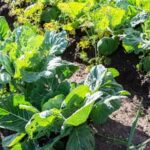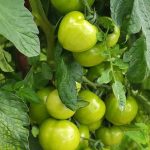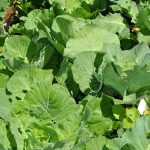Are you looking for ways to protect your vegetable garden from pests without resorting to harmful chemicals? In this article, we will explore the importance of using homemade safe pesticides for vegetable gardens. Understanding the potential risks of commercial pesticides and learning about natural alternatives can help promote a healthier and safer approach to pest control in your garden.
Vegetable gardens are often susceptible to an array of pests that can cause significant damage to crops if left untreated. From aphids and caterpillars to beetles and mites, these common pests can quickly wreak havoc on your plants, leading to poor yield and even crop loss. As a result, many gardeners turn to pesticides to protect their crops, but it’s crucial to consider the potential dangers associated with commercial pesticide products.
The use of commercial pesticides in vegetable gardens can pose risks not only to the environment but also to human health. These chemical-based products contain toxins that can contaminate soil, water sources, and even the vegetables themselves. Additionally, exposure to these chemicals can have adverse effects on beneficial insects, wildlife, and ultimately disrupt the balance of the ecosystem. It is important for gardeners to be aware of these potential dangers when considering pest control methods for their vegetable gardens.
Common Pests in Vegetable Gardens and Their Potential Damage
Vegetable gardens are often vulnerable to the presence of a variety of pests that can cause significant damage to crops if left unchecked. Some common pests that gardeners may encounter include aphids, caterpillars, slugs, and whiteflies.
These pests can devour leaves, stems, and fruits, leading to stunted growth or even total crop loss if not properly managed. It is important for gardeners to be able to identify these pests and understand the potential damage they can cause in order to take appropriate preventive measures.
Aphids, for example, are small insects that feed on the sap of plants and can cause distortion of leaves and stunt the growth of vegetables. Meanwhile, caterpillars are known for their voracious appetite, consuming large portions of leaves and fruits which can lead to extensive damage if not promptly controlled.
Slugs are another common nuisance in vegetable gardens as they feed on seedlings, foliage, and fruits by leaving behind a slimy trail, causing holes and blemishes on the produce. Lastly, whiteflies can weaken plants by sucking out their sap and also transmit diseases as they feed.
To address these potential problems effectively without resorting to harmful commercial pesticides that may pose risks to human health and the environment, many gardeners have turned towards using homemade safe pesticides for vegetable gardens. By using natural ingredients such as neem oil, garlic spray, or soap solution, gardeners can create effective pest control methods that are safe for both the plants and those who consume them.
With proper knowledge and application techniques, these homemade solutions can help maintain a healthy balance in the garden ecosystem while minimizing damage caused by pests.
- Identify common pests in your vegetable garden
- Understand the potential damage these pests can cause
- Consider using homemade safe pesticides instead of commercial options
- Research different natural ingredients for homemade safe pesticides
- Create a step-by-step guide on how to make your own pesticide
- Take precautions when handling ingredients and applying the pesticide
The Dangers of Commercial Pesticides for Vegetable Gardens
Commercial pesticides are commonly used in vegetable gardens to control pests and protect crops. However, many of these pesticides contain harmful chemicals that can pose serious risks to human health and the environment. Some of the dangers of commercial pesticides for vegetable gardens include the potential for toxic residues on produce, harm to beneficial insects and wildlife, contamination of soil and water, and adverse effects on human health from exposure.
One of the most concerning issues with commercial pesticides is the presence of synthetic chemicals that can leave residue on fruits and vegetables. When consumed, these residues can have detrimental effects on human health, leading to concerns about pesticide-related illnesses. Additionally, these chemicals can also harm beneficial insects such as bees, butterflies, and earthworms that play a crucial role in pollination and maintaining soil health.
Furthermore, the use of commercial pesticides can lead to environmental contamination as these chemicals can leach into the soil and water supply. This not only affects the immediate area where the pesticides are applied but also has far-reaching consequences for ecosystems and aquatic life. Given these dangers, it is essential for gardeners to explore alternative methods of pest control that are safer for both people and the environment.
Fortunately, there are effective alternatives to commercial pesticides that are safe for use in vegetable gardens. By utilizing homemade safe pesticides made from natural ingredients, gardeners can effectively manage pests while minimizing harm to themselves or their surroundings.
Homemade Safe Pesticide Options Using Natural Ingredients
When it comes to keeping pests at bay in your vegetable garden, it’s crucial to prioritize the use of safe and natural pesticides. Commercial pesticides often contain harmful chemicals that can not only harm the environment but also pose health risks to humans and animals. This is where homemade safe pesticides come in, offering a natural and effective alternative for controlling pests without compromising the safety of your family and the environment.
There are several options for homemade safe pesticides that utilize natural ingredients such as essential oils, soap, and other household items. One popular recipe involves mixing water, dish soap, and cayenne pepper to create a solution that effectively repels common garden pests like aphids, spider mites, and whiteflies. Another option is using a mixture of neem oil and water, which has been found to be an effective insect repellent while being safe for beneficial insects like bees and ladybugs.
In addition to these examples, there are numerous other homemade safe pesticide recipes that you can easily make with ingredients commonly found in your kitchen or garden. By utilizing these natural alternatives, you can effectively manage pest infestations in your vegetable garden while avoiding the potential risks associated with commercial pesticides.
| Homemade Safe Pesticide Option | Main Ingredients |
|---|---|
| Dish Soap Spray | Water, Dish Soap, Cayenne Pepper |
| Neem Oil Spray | Neem Oil, Water |
| Baking Soda Solution | Baking Soda, Water |
| Gardener’s Soap Spray | Water, Vegetable-based Liquid Soap |
Step-by-Step Guide on How to Make Homemade Safe Pesticides
When it comes to protecting our vegetable gardens from pests, using safe pesticides is crucial for the health of both the plants and those who consume them. Making your own homemade safe pesticides can be an effective and environmentally friendly alternative to commercial chemicals. Here is a step-by-step guide on how to make homemade safe pesticides using natural ingredients:
1. Identify the pest: Before making a pesticide, it’s important to identify the type of pest that is causing damage to your vegetable garden. Different pests may require different homemade remedies.
2. Choose the right ingredients: There are various natural ingredients that can be used to make safe pesticides for vegetable gardens, including garlic, hot pepper, neem oil, and soap. Each ingredient has its own properties that target specific pests without harming beneficial insects.
3. Mix the ingredients: Once you have chosen the appropriate ingredients for your pesticide recipe, carefully follow a trusted recipe or guideline for mixing them in the correct proportions. For example, a simple homemade insecticidal soap can be made by mixing 1 tablespoon of liquid soap with 1 quart of water.
4. Apply the homemade pesticide: After mixing your homemade pesticide, use a spray bottle or garden sprayer to apply it directly onto the affected plants. Be sure to cover both sides of leaves as well as stems where pests may reside.
By following these steps, you can create effective and safe pesticides for your vegetable garden without harmful chemicals. Making your own homemade safe pesticides not only helps protect your plants but also promotes a healthier environment for all living organisms in and around your garden.
Tips for Applying Homemade Safe Pesticides Effectively in Vegetable Gardens
Applying homemade safe pesticides effectively in vegetable gardens is essential for maintaining the health and productivity of your crops. By using natural ingredients to create your own pesticide, you can protect your vegetables from common pests without the harmful effects of commercial pesticides. Here are some tips to help you apply homemade safe pesticides effectively in your garden.
First and foremost, it’s important to properly identify the pests that are affecting your vegetable plants. Different pests require different homemade pesticide solutions, so understanding what you’re dealing with is key. Whether it’s aphids, caterpillars, or mites, knowing the specific pest will help you choose the appropriate homemade pesticide recipe to address the problem.
Once you have identified the pest, it’s time to prepare your homemade safe pesticide. There are various recipes using natural ingredients such as garlic, neem oil, soap spray, or chili pepper that can effectively repel and eliminate pests without harming your vegetables. It’s important to carefully follow the step-by-step guide on how to make these pesticides and ensure that they are well-mixed before application.
When applying homemade safe pesticides in your vegetable garden, timing is crucial. It’s best to apply these natural solutions in the early morning or late afternoon when temperatures are cooler and beneficial insects are less active. Be sure to thoroughly spray both sides of the leaves and target areas where pests are likely to be present. Additionally, regular application every 7-10 days may be necessary for effective pest control.
By following these tips for applying homemade safe pesticides effectively in vegetable gardens, you can protect your crops from pests while promoting a healthier and safer approach to pest control. Not only will you avoid the dangers of commercial pesticides, but you’ll also contribute to a more sustainable and environmentally friendly gardening practice.
Benefits of Using Homemade Safe Pesticides for Vegetable Gardens
Using homemade safe pesticides for vegetable gardens offers a wide range of benefits, both for the garden itself and for the environment. By opting for natural ingredients to control pests, you not only ensure the safety and health of your plants but also contribute to the overall well-being of the ecosystem.
Environmental Friendliness
Commercial pesticides often contain harsh chemicals that can be harmful to the environment, contaminating soil and water sources. Homemade safe pesticides, on the other hand, utilize natural ingredients that are biodegradable and pose no threat to the surrounding ecosystem. This eco-friendly approach helps maintain a healthy balance within the garden and its surroundings.
Healthier Produce
One of the key benefits of using homemade safe pesticides is that it promotes healthier and safer produce. Unlike commercial pesticides, which can leave chemical residues on fruits and vegetables, natural homemade solutions eliminate this risk. This means that you can enjoy fresh, organic produce without worrying about exposure to harmful chemicals.
Cost-Effectiveness
Another advantage of using homemade safe pesticides is that they are cost-effective in the long run. Many of the ingredients used to create these natural pest control solutions are readily available in most households or can be easily obtained at a low cost. This makes them an affordable alternative to purchasing commercial pesticides, saving money while still effectively managing pests in your vegetable garden.
Precautions and Safety Measures When Using Homemade Safe Pesticides
Using homemade safe pesticides for vegetable gardens provides an effective and natural way to control pests without causing harm to the environment, humans, or beneficial insects. However, it is important to take certain precautions and safety measures when using these homemade remedies to ensure their effectiveness and avoid any potential risks.
First and foremost, it is crucial to carefully follow the recipe and instructions for making homemade safe pesticides. Using the wrong proportions or ingredients can result in ineffective pest control or even harmful effects on plants. Additionally, when applying the homemade pesticide, always wear protective clothing such as gloves and a mask to avoid direct contact with the pesticide solution.
Another important precaution when using homemade safe pesticides is to apply them during the early morning or late evening when beneficial insects are less active. This reduces the risk of harming bees, butterflies, and other beneficial insects that play a crucial role in pollination and maintaining a healthy ecosystem in your vegetable garden.
It is also advisable to conduct a patch test on a small area of your vegetable garden before applying the homemade safe pesticide to the entire garden. This helps identify any potential adverse effects on plants and allows you to make adjustments if necessary. Additionally, always store homemade safe pesticides in clearly labeled containers away from children and pets to prevent accidental ingestion or misuse.
By taking these precautions and safety measures when using homemade safe pesticides for vegetable gardens, you can effectively control pests while promoting a healthier and safer approach to pest control. These natural alternatives offer peace of mind knowing that your vegetables are not being exposed to harmful chemicals, making them safe for consumption by you and your family.
Conclusion
In conclusion, the use of homemade safe pesticides for vegetable gardens offers a healthier and safer approach to pest control. By understanding the importance of using natural ingredients and avoiding the dangers of commercial pesticides, gardeners can effectively protect their plants without harming themselves, their families, or the environment. Homemade safe pesticides provide an eco-friendly alternative that reduces the risk of chemical exposure and promotes sustainability in gardening practices.
These natural pesticide options are not only effective in combating common pests like aphids, caterpillars, and beetles but also offer a cost-effective solution for gardeners. With simple ingredients that can be found at home or in local stores, individuals can easily create their own safe pesticides without relying on harmful chemicals. Additionally, homemade safe pesticides promote biodiversity and support beneficial insects that contribute to a healthy ecosystem in vegetable gardens.
By following the step-by-step guide for making homemade safe pesticides and applying them effectively in vegetable gardens, gardeners can enjoy the benefits of pest control without compromising their health or the environment. Furthermore, practicing precautions and safety measures when using these natural alternatives ensures responsible usage and minimizes any potential risks.
In promoting a healthier and safer approach to pest control in vegetable gardens, gardeners can contribute to a sustainable and thriving environment while enjoying bountiful harvests from their efforts.
Frequently Asked Questions
How Do You Make Natural Pesticides for Vegetables?
Making natural pesticides for vegetables can be done using ingredients like neem oil, soap, garlic, and hot pepper. These can be mixed with water and sprayed onto the plants to deter pests without harmful chemicals.
How Do You Make Homemade Spray to Keep Bugs Off Vegetable Plants?
Homemade sprays to keep bugs off vegetable plants can be made using ingredients like dish soap, vegetable oil, and water. These can be mixed together and sprayed onto the plants to suffocate or repel the bugs.
What Can I Spray on My Vegetable Plants to Keep Bugs Off?
Spraying a mixture of soapy water, garlic spray, or neem oil onto vegetable plants can help keep bugs away. These natural solutions are effective at deterring pests while being safe for consumption.

If you’re looking to get into vegetable gardening, or are just looking for some tips on how to make your current garden better, then you’ve come to the right place! My name is Ethel and I have been gardening for years. In this blog, I’m going to share with you some of my best tips on how to create a successful vegetable garden.





